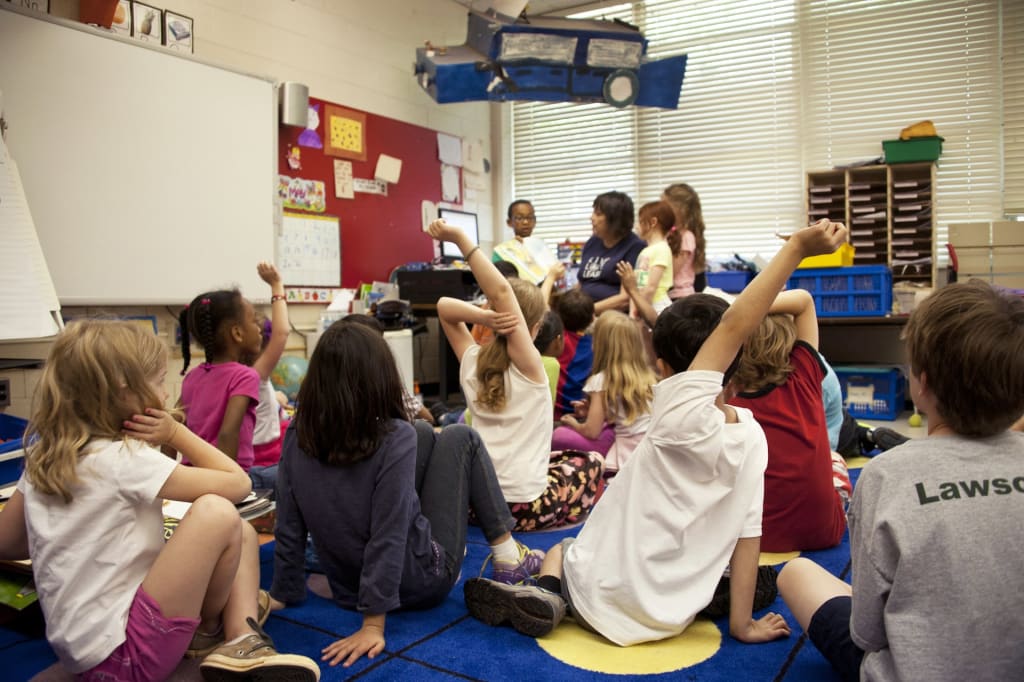Why is pre-school education important for kids?
A pre-school helps young children's minds develop in a variety of ways...

The importance of a pre-school in a child's life cannot be overstated, as the learning environment provided to children aged three to five has several positive implications for their future development. When parents enroll their children in a pre-school, they expect the pre-school to boost their child's self-esteem so that they can express themselves and understand the new world they are entering. As a result, the children will be better prepared for their academic journey in primary school.
Sending your child to a pre-school can be a new and transformative experience for both the child and his or her parents. Parents must leave their children alone for a few hours while they are in the care of trustworthy and loving preschool teachers. Similarly, children require time away from their parents in order to develop their communication and social skills. They also have the opportunity to socialize with other children their age. This helps to alleviate their anxiety about being separated from their parents. Pre-school education is essential because most parents work and do not have enough time to spend with their children and properly guide them.
A pre-school helps young children's minds develop in a variety of ways:
1. Developing symbolic and mental skills
Children aged three to four learn to mentally or symbolically represent objects and actions. They begin by playing with miniature versions of things around them, creating their own imaginary world, which becomes more elaborate as they grow. As a result, it is critical for a pre-school to have a variety of toys and learning tools to keep children engaged while they develop their minds.
2. Social and emotional development
Children in preschool will learn to strengthen their social and emotional skills while also understanding the value of sharing and caring. Pre-schools provide a safe place for children to explore, develop a sense of self, and gain confidence. Children learn how to complete tasks and make decisions without the assistance of their parents. There are numerous ways in which pre-schools assist children in making friends, collaborating, listening, and developing core conversation skills.
3. State of readiness for becoming lifelong learners
Preschool learning includes a significant amount of behavioral management. Children develop a love of learning in preschool by participating in fun activities. Children learn to be patient, to raise their hands, and to take turns. Children are also taught how to pay attention to what is being taught, which improves their concentration. Some playschools assist children in finding answers through exploration, experimentation, and communication.
4. Language and cognitive skills
Reading and writing skills are developed at a preschool in a "language-rich" environment. During art, snack time, and other activities, specially trained teachers help children strengthen their language skills by introducing new words and expanding their vocabulary. Singing and creative play provide numerous opportunities for children to learn language.
5. Academics made interesting
Children are taught numbers and letters in an engaging and appealing manner at a pre-school. Singing alphabet songs or learning rhymes, for example, helps them notice the distinct sounds within words. Storytelling also greatly improves listening and expressive language skills. Putting puzzles together teaches children to recognize patterns and improves their problem-solving abilities. In addition to understanding these fundamentals, children frequently develop a sense of joy and motivation to continue learning. They learn best through engaging activities such as songs, stories, and imaginative play.
6. Achieving self-confidence
In a preschool setting, children learn to be independent and responsible from an early age. They may have classroom jobs while taking pride in assisting their classmates. Learning new skills also aids in the development of confidence. In a preschool, teachers use a variety of games and activities to help children develop pre-literacy skills.
In a preschool, children are frequently given opportunities to practice being responsible. They are taught and expected to wash their hands, care for personal belongings, and return toys to their proper places after play. When it comes to speaking skills, pre-schoolers clearly have an advantage because they have so many opportunities to participate in new activities such as acting out stories, singing, and so on.
To summarize, pre-schools play an important role in shaping young children's minds and enabling them to progress and achieve excellence in their later years at school and in life.
About the Creator
Amit Kumar
Full-time thinker & part-time writer...
Reader insights
Outstanding
Excellent work. Looking forward to reading more!
Top insights
Compelling and original writing
Creative use of language & vocab
Easy to read and follow
Well-structured & engaging content
Expert insights and opinions
Arguments were carefully researched and presented
Eye opening
Niche topic & fresh perspectives
Heartfelt and relatable
The story invoked strong personal emotions
Masterful proofreading
Zero grammar & spelling mistakes
On-point and relevant
Writing reflected the title & theme






Comments (1)
I studied early childhood education and even progressed to getting my doctorate in Education. I worked at a day care and it was the best job I had along with being a nurse.